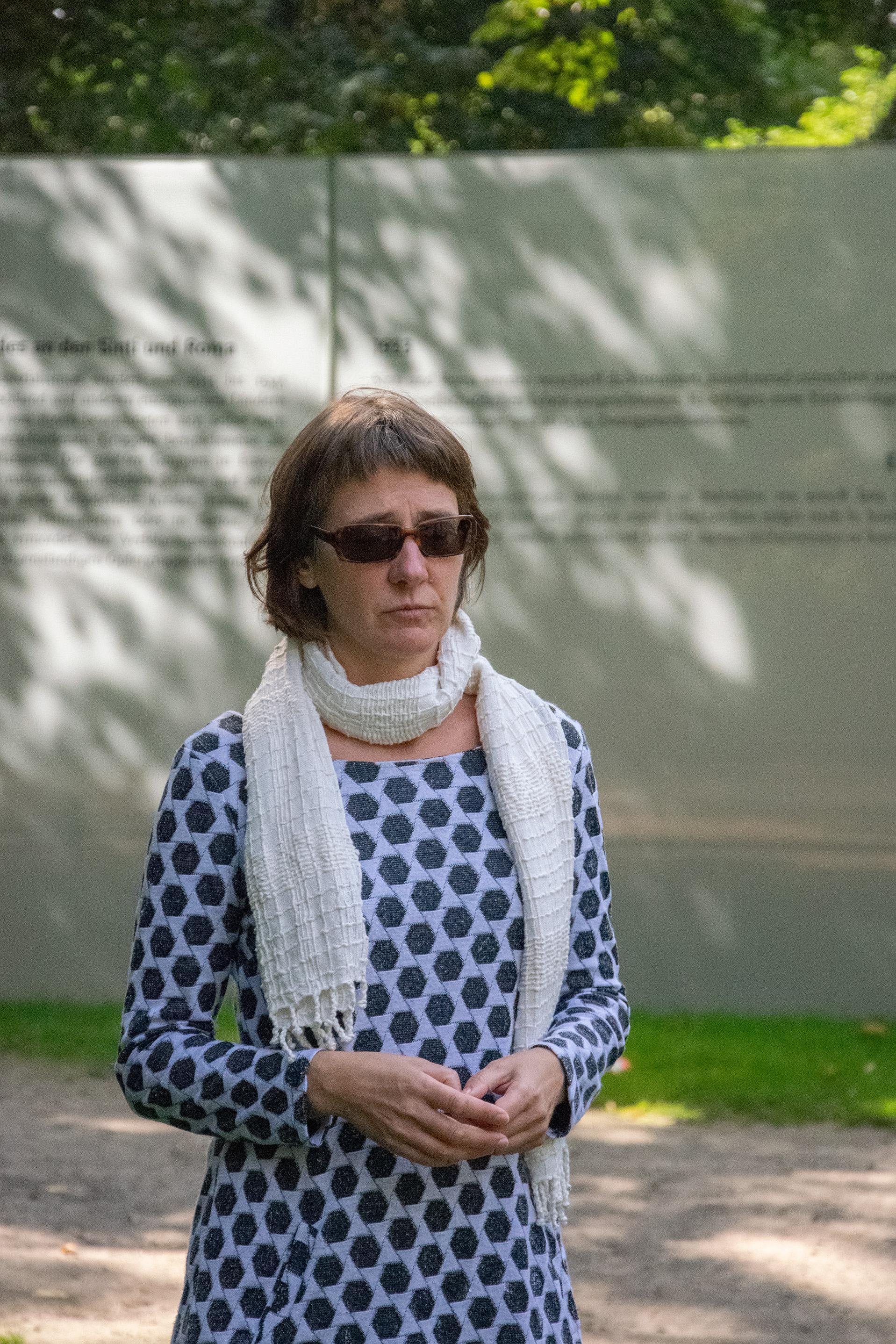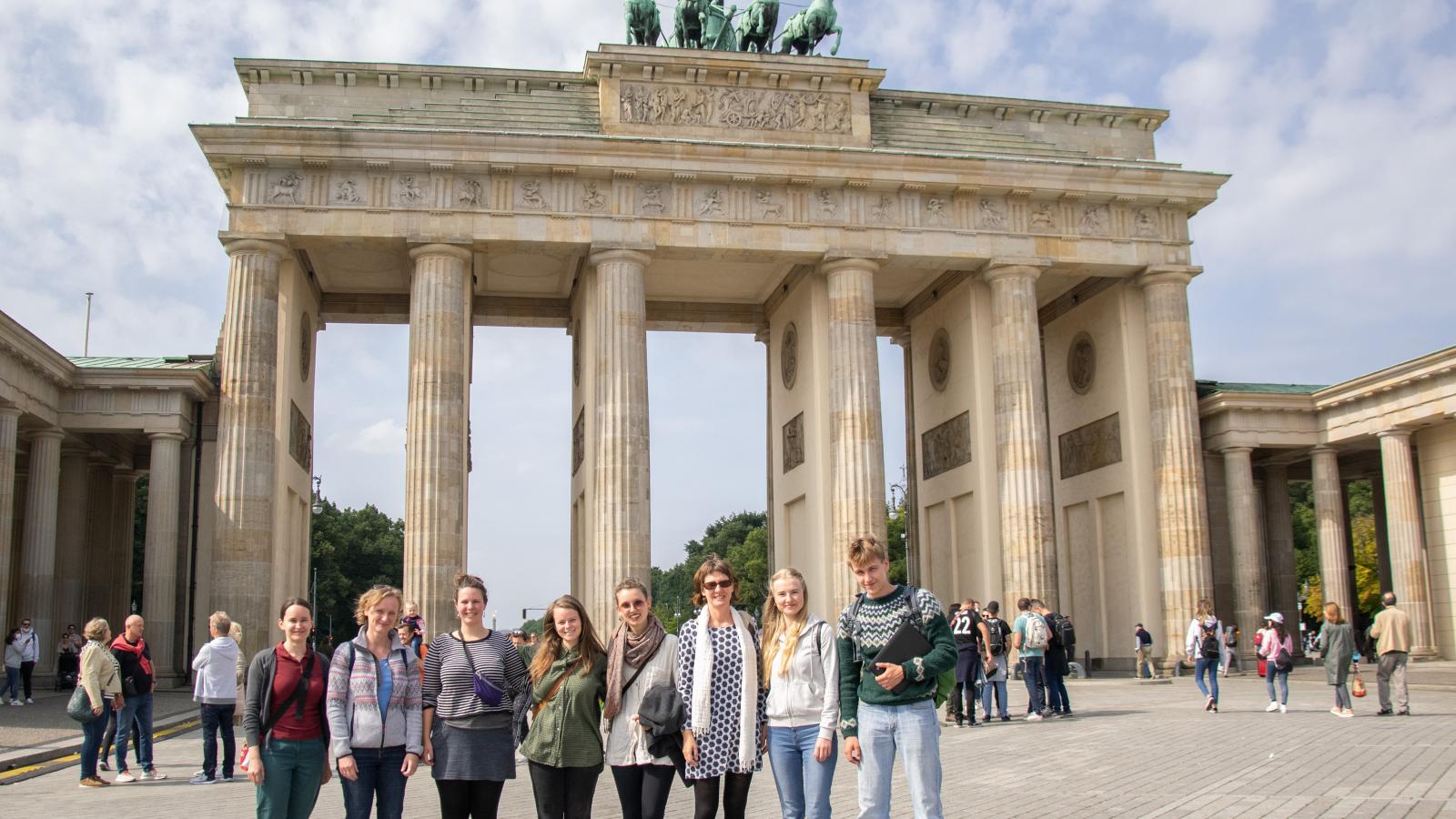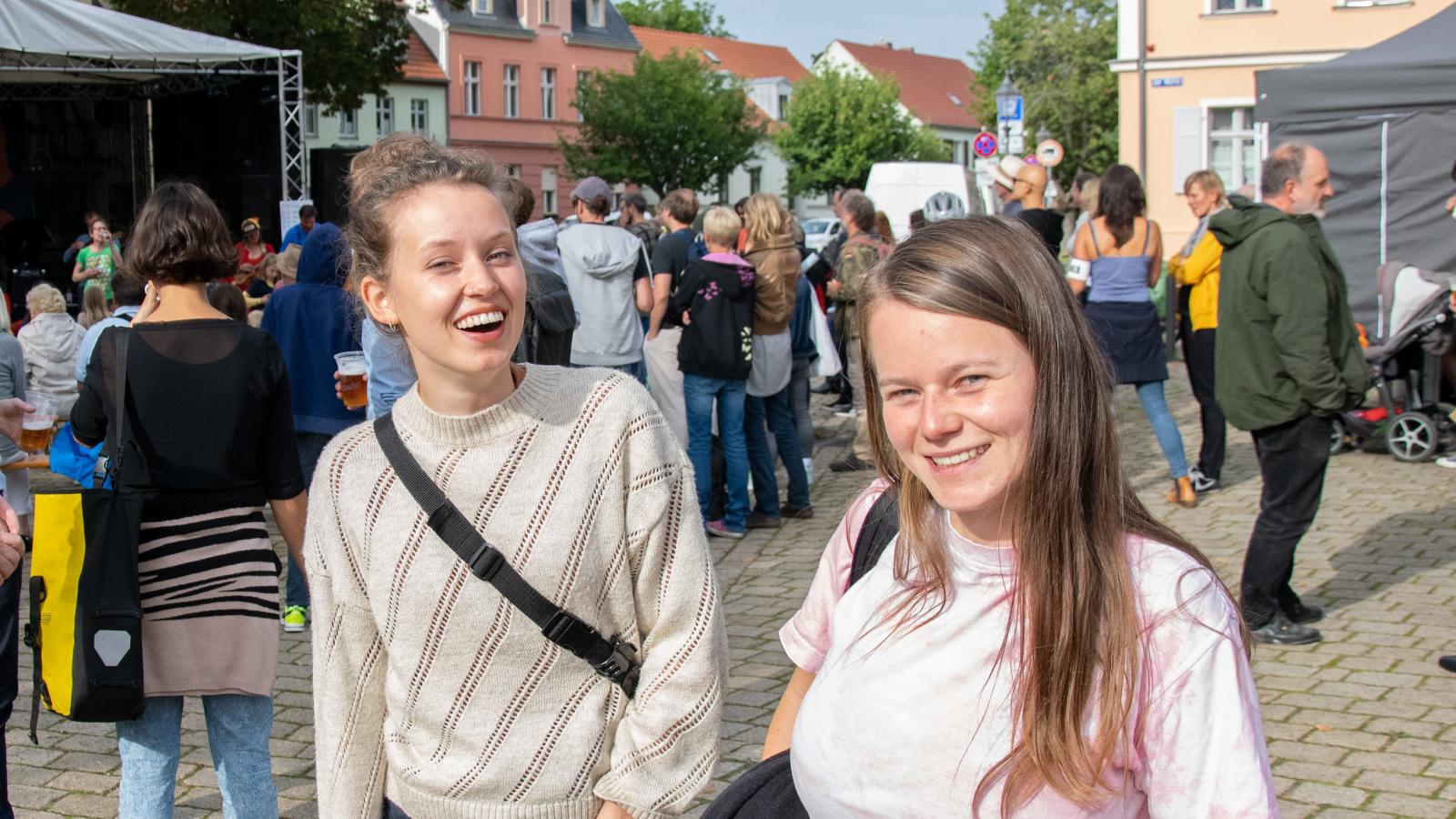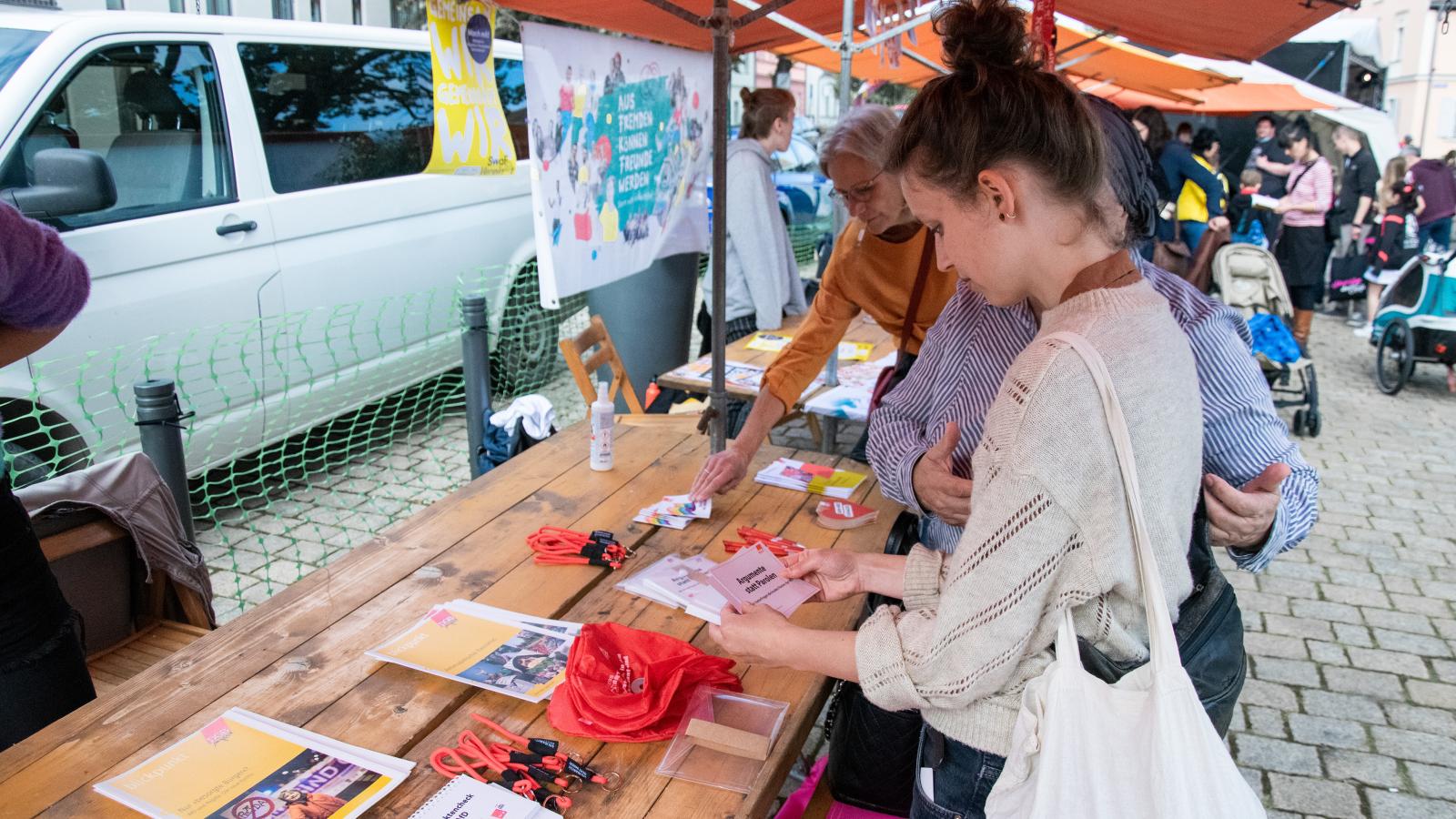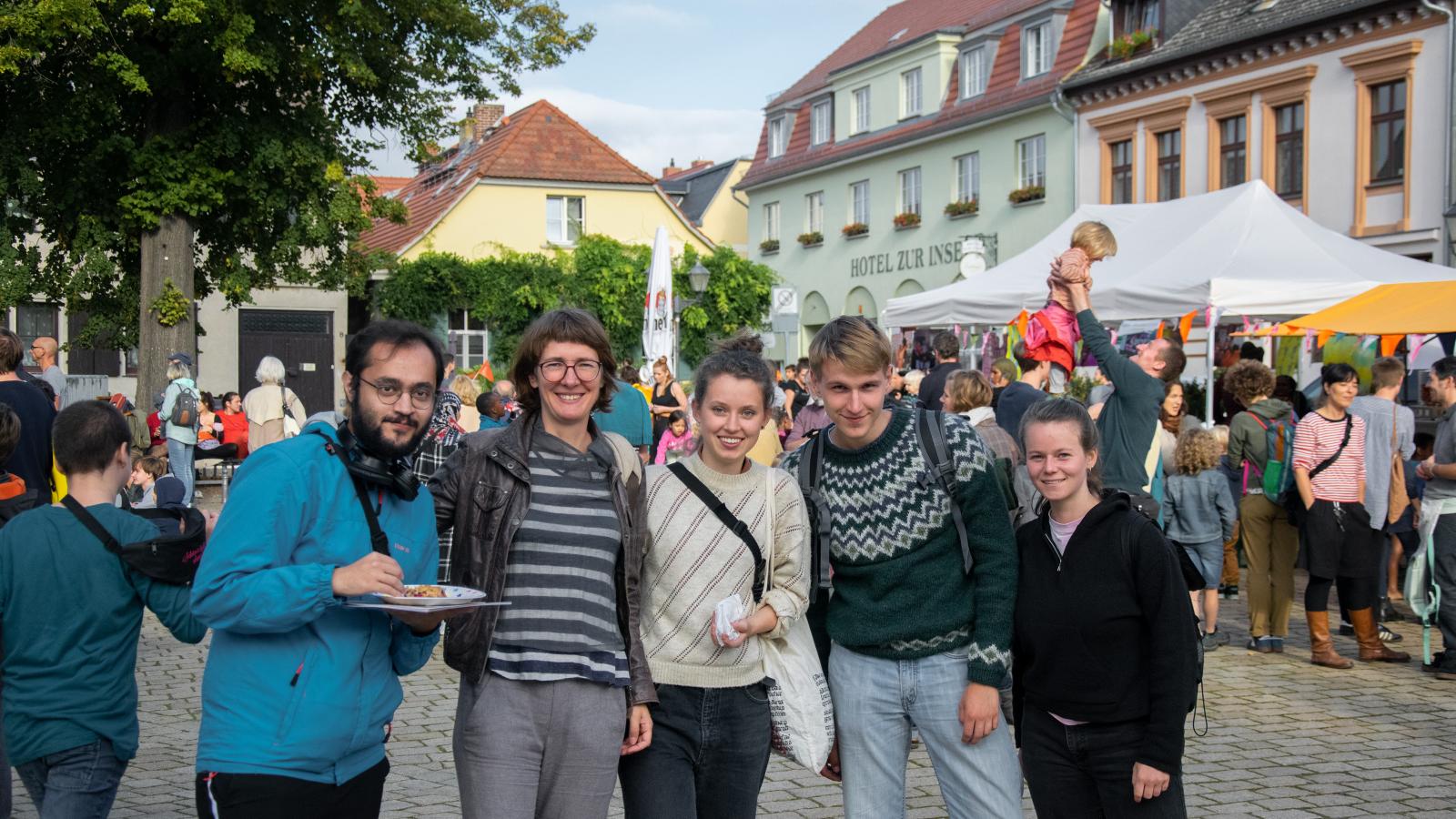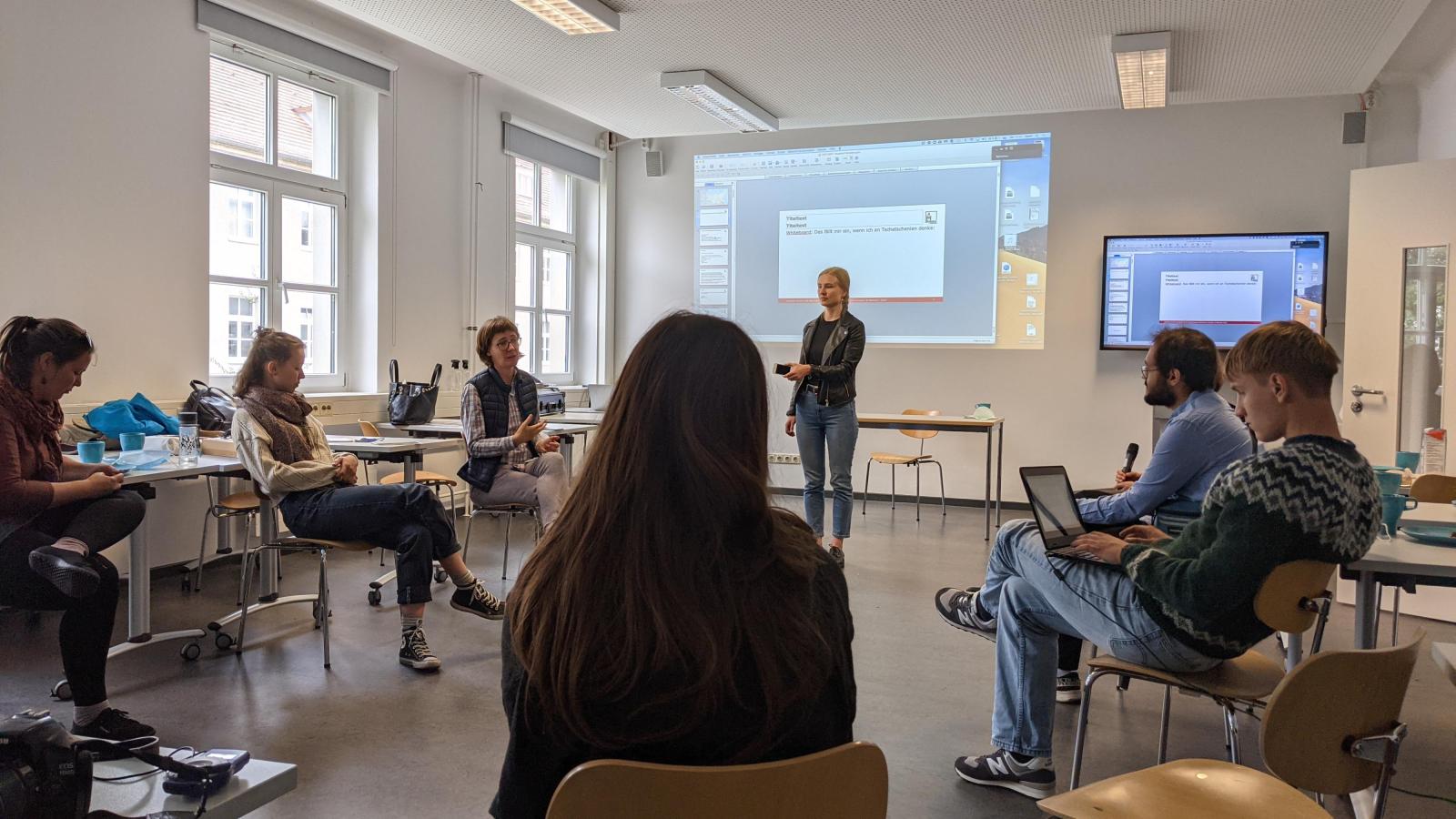International Summer School "Social Work with Traditional Families" with Visiting Academic Dr Libkhan Bazaeva
The first Int'l Flex International Summer School (ISS) gave exciting insights into social work with traditional families in Germany and Chechnya, and had everyone involved in the complicated process of obtaining a visa.
Curriculum
In this first International Summer School, funded by the project "FL²@Int'lFlex - Research-based Teaching and Learning in an International Context", students came together with participants of the study project "Social Work in Germany and Chechnya" of the University of Applied Sciences Potsdam and the Chechen State University as well as women's rights activists from Women for Development for a professional exchange.
The participants explored the question of how social services can constructively support Chechen or traditional families in conflicts and with problems. For this purpose, they organised conversations with German Chechens in order to learn about their migration experiences and strategies for dealing with conflicts centered around values. In addition, the students interviewed social workers from the Berlin-Brandenburg social services who have experience in counselling traditional families about their work. Among other things, the participants of the International Summer School were interested in whether traditional values can be used as resources for teaching universal human rights and social participation.
Summary by Dr Marit Cremer
International meetings in times of the pandemic are challenging and by a hair's breadth we almost had to delete the "I" from ISS. Only one guest from Chechnya made it over the entry hurdles to join us in Potsdam. With Libkhan Bazaeva, who has been leading a women's rights organisation in the North Caucasus for many years, we had a competent expert on dealing with conflictual living situations in traditional communities at our side as part of the Int'l Flex project funded by the DAAD.
Most of the students were well prepared for the topic through their participation in the two-semester seminar "Social Work in Germany and Chechnya" with me and the study trip to Chechnya in May. Social work interventions are often rejected by traditional families. This is no different in Germany than in Chechnya. An important role is played by the families' fear of losing their reputation. As a result, conflicts are made taboo and thus exacerbated.
For Libkhan, the open approach of social institutions to issues that are mostly taboo in Chechnya offered a valuable view of completely different approaches to coping strategies. Some of the institutions visited were able to report on their experiences with Chechen clients. In return, Libkhan explained in an impressively analytical and intelligent way how state and non-state institutions in Chechnya deal with the above-mentioned topics. This led to exciting discussions about possible ways out of repressive and morally pressured interventions by state institutions or families.
Libkhan herself was "pleasantly surprised that the students did not limit their knowledge to their own country, but were actively interested in the specifics of social work in the countries from which the refugees come. They were willing to connect the social habits of these people in Germany with their lives. The desire to understand the reasons for flight and the expectations of the refugees was obvious. In the workshops and discussions, the students showed a deep immersion in social work practice in addition to their sound theoretical knowledge."
One of the most important outcomes of the ISS for our guest, who bore all the travel hardships with admirable perseverance, was "the formation of tolerance in society, the effort and movement of people towards each other." A topic that is far from exhausted even after seven days of International Summer School.
